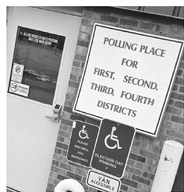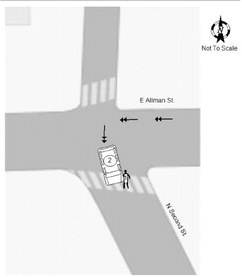Probate is a topic that should be on seniors’ radars


“Probate is the formal legal process for distributing assets that are left by somebody when they die,” said Attorney Trevor Passmore of Jensen, Scott, Grunewald & Shiffler, S.C. “It is a process that can be expensive. You need to do a lot of accounting, and the potential for probate to be contested can make it even more expensive than anticipated.”
Most probates are informal probates, meaning that the court does not directly supervise the estate. While informal probate can take a year or more, assets might be distributed at various points before the process is complete.
The process can take more than a year because the court ensures anyone with a potential claim to the estate has an opportunity to make it. Creditors have a three-to-four-month period. Notice of the probate is published in the paper for anyone with a potential stake in the estate to see. The estate then needs to be fully inventoried and accounted for. Only after all this accounting is done and assets have their designated recipients is the process complete.
While the probate process can be intimidating and expensive, there are ways to minimize its complexity or avoid it altogether. To understand the need for probate, you must understand what is called “probate property.” Probate property is any property solely in the decedent's name and without a designated beneficiary.
One way of avoiding probate is doing a beneficiary-driven estate plan. Under this type of planning, beneficiaries are put on all accounts and real estate (it is a good idea to have secondary beneficiaries on these assets). In addition, a married couple can avoid probate by entering into what is called a “Washington will.” This is a marital property agreement that has been authorized in the State of Wisconsin since 1986, and the guts of which read much like a will. For single individuals, they can do a nonprobate transfer document. This is a simple document that, like a Washington will for couples, reads like a will.
Another way to avoid probate is by creating a revocable living trust. The theory is that you transfer your assets to the trust and when you die, you do not own anything, but the trust does. It is a theory that works.
If there is less than $50,000 in probate property, there are shortcuts to the probate process. These shortcuts are significantly faster and less expensive than a full-blown probate. Individuals with an estate worth less than $50,000 may not need to prepare an exhaustive estate plan avoiding probate, but you may still want to have a will drafted to make sure the assets you do have are distributed as you want them to be. You should also be mindful that you may have more assets than you realize between all your personal or real property, any financial accounts, as well as the fact that you may accrue or inherit assets that you would want your estate plan to account for. Consulting with an estate planning attorney may help you ensure these circumstances are accounted for in your estate plan.
To set up these mechanisms, Attorney Passmore recommended that people seek out legal counsel: “We recognize as attorneys that it can be daunting to have to pay attorney’s fees, especially for something like an estate plan that you don’t see immediate value from, but it is always almost the case that it’s a lot cheaper to seek an attorney up front versus leaving your heirs to iron out the consequences of a mistake later on.”
In order to ensure their property is passed on as they wish, people can work with an attorney to make an estate plan. “You can sit down with an attorney, discuss your goals whatever they may be, and they can help you develop a plan that is the best way to achieve those outcomes. A lot of times that ends up being drafting instruments to avoid probate just because you save your estate so much time and expense that way,” Attorney Passmore said.
People in the aging community may not only have to consider probate of their own estate, but they may find themselves in a position to act as personal representative for someone else’s estate. If an individual is named as the personal representative, Attorney Passmore advised seeking legal counsel to streamline the process: “As a personal representative, it can be overwhelming to have to go through that process and learn it all. There are a lot of steps and a lot of paperwork that you have to file. You basically can save yourself a lot of time and trouble by seeking out an attorney who is familiar with it. In our office, we have sort of a pipeline for probates. We know the necessary steps and save our clients a great deal of time and headache by offering guidance and doing a lot of the legwork of being personal representative for them.
There’s a lot to self-teach if you’re going through the process of being a personal representative for the first time, and that can be avoided by seeking legal counsel.” It is also worth noting that the attorney fees that arise from estate administration can be paid with funds from the estate itself, so you can save yourself a lot of stress as personal representative without needing to pay out of your own pocket.




